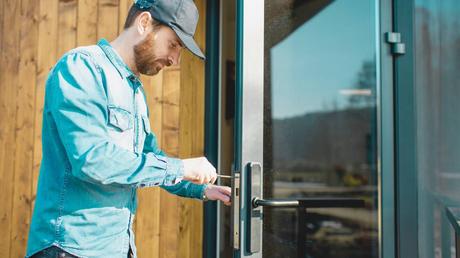
Last Updated on May 15, 2024 by Kravelv
Replacing your home locks can enhance your security and give you peace of mind. However, it's essential to approach this project with careful planning and the right knowledge. Here are some key considerations for homeowners undertaking DIY lock replacement.
Assessing Your Security Needs
Before purchasing new locks, evaluate your home's security needs. Consider the location of your home, the usual traffic in and around it, and what you are protecting. A higher security grade may be necessary for doors that are main entry points or those on ground floors levels. Research different types of locks, such as deadbolts, smart locks, and knob locks, and determine which design best suits your security requirements and lifestyle.
Choosing the Right Lock
Selecting the right lock involves more than just considering security; it also includes ensuring the lock fits the style and setup of your door. Make sure the new lock is compatible with your door in terms of size, style, and material. Also, for exterior doors, look for locks rated Grade 1 or Grade 2 by the American National Standards Institute (ANSI) for maximum security and durability.
Gathering the Necessary Tools and Preparing for the Project
Having the right tools on hand is crucial for a successful DIY lock replacement. Generally, you will need a screwdriver, a tape measure, and possibly a drill if you are making new holes or enlarging old ones. Prepare your workspace by clearing the area around the door and ensuring you have good lighting. Review the installation instructions for your new lock carefully so you can familiarize yourself with the process and any specific requirements.
Installing the Lock
When installing your new lock, take your time to ensure everything fits correctly and works smoothly. If you're drilling new holes, double-check the measurements before you begin to avoid any mistakes that could damage the door. Be careful not to overtighten screws, as this can warp the lock mechanism or damage the door. Test the lock several times before closing the door completely to ensure it latches and locks without issue.
Knowing When To Call a Professional
While many homeowners can successfully replace a lock, some situations call for professional help. If you encounter complications such as door misalignment or damaged hardware, or if you simply want to ensure the job is done flawlessly, it's worth knowing how to hire a reliable locksmith. To find a reputable locksmith, look for certified professionals with good reviews, ask for recommendations from friends and family, or check with local security or builders' associations.
Now that you know the key considerations for DIY lock replacement, you can approach this project with greater confidence. Remember, the safety of your home starts with secure, properly installed locks.
